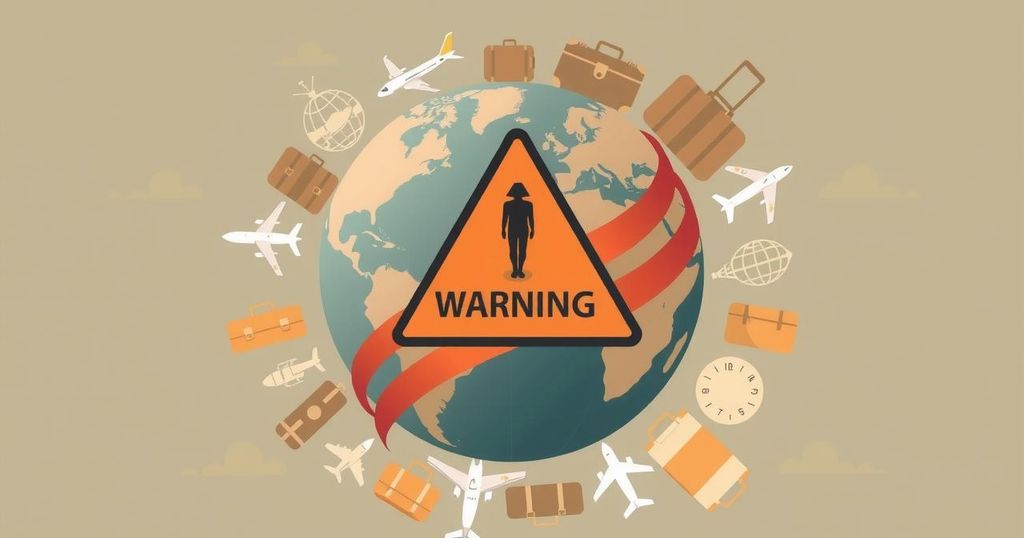The U.S. Department of State has added South Sudan to its “Do Not Travel” list, citing increasing violence and crime. This classification threatens the already fragile tourism sector and may lead to reduced flights and investment. As global instability rises, many once-viable destinations become unsafe for travel, necessitating emergency reassessments for the industry.
On March 10, 2025, the United States Department of State officially placed South Sudan on its highest-risk “Do Not Travel” list, joining Yemen, Venezuela, Russia, Libya, Ukraine, the Central African Republic (CAR), and Haiti. This listing has been prompted by escalating violence, armed conflicts, and rampant crime, indicating that South Sudan is no longer a viable travel destination. Consequently, the tourism sector is anticipated to experience severe economic ramifications as airlines reduce flights and foreign investments dwindle.
The decision reflects a surge in global instability, with conflicts and terrorism disrupting travel trends in multiple regions. The advisory emphasizes the dangers associated with travel to South Sudan, including violent crime such as carjackings and kidnappings, exacerbated by the proliferation of weapons among civilians.
Despite having potential for wildlife tourism and cultural experiences, South Sudan’s tourism prospects are now bleak due to heightened security threats. Companies offering such tourist activities are likely to see significant declines in bookings, further complicating travel logistics as airlines consider suspending flights to the area.
Tourism businesses, including hotels and transportation services, will likely face dire challenges in maintaining operations. Foreign investors are expected to withdraw from the South Sudanese tourism scene due to its classification on the “Do Not Travel” list, leading to the likely halt of tourism development projects.
Typically, travelers to South Sudan consist of aid workers and journalists, all of whom now face increased risks of violence. The advisory signals that organizations might need to reconsider their presence and operations in South Sudan altogether.
South Sudan joins a growing list of nations affected by U.S. travel advisories due to serious safety concerns. Countries like Yemen, Venezuela, and Russia also share similar challenges, characterized by terrorism, political unrest, and arbitrary detentions. These advisories are a clear indication of the perilous realities facing numerous regions around the globe.
Consequently, the rise in countries designated on the U.S. “Do Not Travel” list reflects a deteriorating global security landscape. The tourism sector must now navigate the substantial impacts of these designations, adapting to an era where instability renders many once-accessible destinations off-limits. Stakeholders in travel and hospitality will need to reassess their strategies and respond to the current situation with caution.
In conclusion, the inclusion of South Sudan on the U.S. “Do Not Travel” list highlights the growing security risks that threaten global tourism. The advisory signifies severe economic consequences for tourism and hospitality, with reduced travel logistics and diminished foreign investment. As instability persists across several nations, the tourism sector faces significant challenges in adapting to a new landscape where safety concerns drastically affect travel decisions.
Original Source: www.travelandtourworld.com




